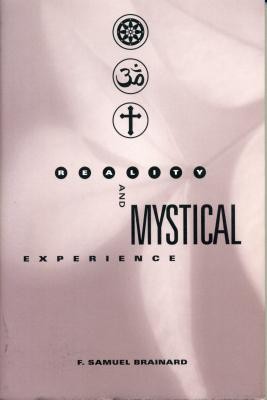
- We will send in 10–14 business days.
- Author: F Samuel Brainard
- Publisher: Penn State University Press
- ISBN-10: 0271030216
- ISBN-13: 9780271030210
- Format: 15.2 x 22.9 x 1.8 cm, softcover
- Language: English
- SAVE -10% with code: EXTRA
Reviews
Description
Responding to our modern disillusionment with any claims to absolute truth regarding morality or reality, this book offers a conceptual approach for discussing absolutes without denying either the relevance of divergent religious and philosophical teachings or the evidence supporting postmodern and poststructuralist critiques. Case studies of mysticism within Advaita-Vedānta Hinduism, Mādhyamika Buddhism, and Nicene Christianity demonstrate the value of this approach and offer many fresh insights into the metaphysical presuppositions of these religions as well as into the nature and value of mystical experience. Like Douglas Hofstadter's Gōdel, Escher, Bach, this book finds ultimate reality to be rationally graspable only as an eternal fugue of pattern and paradox. Yet it does not so much counter other philosophical views as provide a conceptual tool for understanding and classifying incommensurable views.
EXTRA 10 % discount with code: EXTRA
The promotion ends in 17d.16:26:06
The discount code is valid when purchasing from 10 €. Discounts do not stack.
- Author: F Samuel Brainard
- Publisher: Penn State University Press
- ISBN-10: 0271030216
- ISBN-13: 9780271030210
- Format: 15.2 x 22.9 x 1.8 cm, softcover
- Language: English English
Responding to our modern disillusionment with any claims to absolute truth regarding morality or reality, this book offers a conceptual approach for discussing absolutes without denying either the relevance of divergent religious and philosophical teachings or the evidence supporting postmodern and poststructuralist critiques. Case studies of mysticism within Advaita-Vedānta Hinduism, Mādhyamika Buddhism, and Nicene Christianity demonstrate the value of this approach and offer many fresh insights into the metaphysical presuppositions of these religions as well as into the nature and value of mystical experience. Like Douglas Hofstadter's Gōdel, Escher, Bach, this book finds ultimate reality to be rationally graspable only as an eternal fugue of pattern and paradox. Yet it does not so much counter other philosophical views as provide a conceptual tool for understanding and classifying incommensurable views.


Reviews